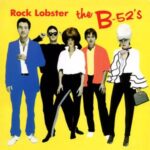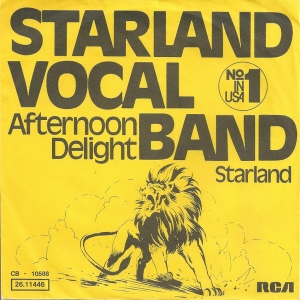 When “Rock Lobster” hit the airwaves in 1978, it sounded like nothing else on Earth. Even today, over four decades later, it still doesn’t sound like anything else. Recorded by a group of art-school outsiders from Athens, Georgia—the soon-to-be-legendary B-52’s—the song was a wild, tropical, neon-colored explosion of surf rock, punk energy, and dadaist humor. It wasn’t just a song; it was a party that somehow turned into a movement.
When “Rock Lobster” hit the airwaves in 1978, it sounded like nothing else on Earth. Even today, over four decades later, it still doesn’t sound like anything else. Recorded by a group of art-school outsiders from Athens, Georgia—the soon-to-be-legendary B-52’s—the song was a wild, tropical, neon-colored explosion of surf rock, punk energy, and dadaist humor. It wasn’t just a song; it was a party that somehow turned into a movement.
At a time when punk was snarling in dirty clubs and disco was lighting up mirrored dance floors, “Rock Lobster” created a third option—something defiantly weird, wildly fun, and completely uninterested in playing by any rules. This was a song that made nonsense sound revolutionary. It’s the moment when kitsch collided with chaos, when five eccentric musicians showed the world that rock and roll could be as silly as it was subversive.
The Athens Awakening
To understand “Rock Lobster,” you have to understand where it came from. The B-52’s weren’t born in the epicenters of cool—New York, Los Angeles, or London—but in Athens, Georgia, a sleepy college town that would become ground zero for alternative music. In the late 1970s, Athens was just starting to bubble with creative energy. Students and artists gathered at house parties, thrift stores, and underground clubs, inventing a new kind of pop that mixed irony, sincerity, and absurdity in equal measure.
It was at one of these parties that The B-52’s—Fred Schneider, Kate Pierson, Cindy Wilson, Ricky Wilson, and Keith Strickland—were formed. They famously decided to start a band after sharing a flaming volcano drink. None of them had classical training, but all of them had imagination to spare. With their secondhand clothes, thrift-shop instruments, and unfiltered energy, they created a sound that felt like retro-futurism beamed in from a world where the 1950s never ended—but got way weirder.
“Rock Lobster” was their first single, originally recorded for an independent label before being re-recorded for their self-titled 1979 debut album. It became their defining anthem—a bizarre, brilliant slice of postmodern pop that made everyone from punk kids to new wave fans to disco dancers stop and ask, “What the hell is this?”
The Sound of Organized Chaos
From its opening riff, “Rock Lobster” is unmistakable. Ricky Wilson’s guitar doesn’t sound like a normal guitar—it’s sharp, twangy, almost metallic, more like a space-age surfboard slicing through alien waves. Keith Strickland’s drums drive the song with a relentless, beach-party beat, while Kate Pierson’s Farfisa organ and Cindy Wilson’s high harmonies swirl around like a psychedelic whirlpool.
And then there’s Fred Schneider. His vocal delivery isn’t really singing; it’s more like spoken-word carnival barking, half demented emcee, half retro sci-fi narrator. His deadpan enthusiasm turns the simplest phrase into something unforgettable. When he shouts “We were at a party! His ear lobe fell in the deep!” it doesn’t matter that it makes no logical sense—it feels perfect.
But what really pushes “Rock Lobster” from great to iconic are the vocalizations from Pierson and Cindy Wilson. As the song builds into its famous “under the sea” section, the women trade off surreal sound effects—yelps, shrieks, and wails that mimic sea creatures like whales, jellyfish, and narwhals. It’s a chaotic symphony of nonsense that somehow works as pure pop art.
This was the genius of The B-52’s: they took kitsch seriously. Their humor wasn’t cynical; it was celebratory. They weren’t mocking the absurd—they were living in it.
The Year 1978 and the State of Rock
When “Rock Lobster” first appeared in 1978, the rock world was split into tribes. The punks were dismantling rock’s pretensions, the disco crowd was ruling the dance floors, and arena rock bands were polishing every note to radio perfection. Into that landscape stumbled The B-52’s, looking and sounding like a group of aliens who had just discovered The Jetsons and The Beach Boys at the same time.
Their timing couldn’t have been better. The late ’70s were hungry for something fresh, something playful after years of self-serious music. The B-52’s provided exactly that—a bridge between punk’s DIY ethos and pop’s danceability. They weren’t angry, they weren’t moody, and they weren’t macho. They were gender-fluid, campy, and full of joyous weirdness.
By the time “Rock Lobster” made its way to college radio and New York’s underground clubs, it became a phenomenon. DJs couldn’t resist spinning it, and dancers couldn’t resist moving to it. Even John Lennon reportedly heard the song and said it inspired him to start making music again after years of retirement—its combination of playfulness and invention reminded him of his own early experiments with The Beatles.
The Lyrics: Beautiful Nonsense
The lyrics of “Rock Lobster” read like a surreal beach party dreamscape:
“Motion in the ocean, his air hose broke / Lots of trouble, lots of bubble…”
It’s not supposed to make sense. It’s supposed to feel like something—a sensory overload of underwater weirdness, sea creatures, and dancing bodies. The B-52’s were tapping into the essence of early rock and roll, where emotion and rhythm mattered more than logic.
The title itself, “Rock Lobster,” encapsulates the band’s ethos. It’s silly, catchy, and a little subversive. A lobster—hard shell, soft interior—becomes a metaphor for the band’s duality: absurd on the outside, sincere on the inside. The song’s repetitive structure and call-and-response vocals make it hypnotic, like a chant from a cult that worships surfboards and thrift-store polyester.
It’s impossible to resist. By the time Fred calls out “Down! Down!” and the music collapses into the deep, you’re not just listening anymore—you’re in it, dancing with imaginary sea creatures, yelling along like it all makes perfect sense.
A Soundtrack for the Misfits
“Rock Lobster” became more than a novelty hit—it became an anthem for outsiders. Its sheer weirdness gave permission for weirdness everywhere. For those who didn’t fit into the strict social boxes of the ’70s—too artsy for rock, too awkward for disco—the B-52’s offered a home.
Their androgynous look, their love of vintage fashion, and their embrace of camp aesthetics prefigured so much of what would later define the 1980s new wave scene. Without “Rock Lobster,” you don’t get Devo, Talking Heads’ Remain in Light, or even Cyndi Lauper’s Girls Just Want to Have Fun.
It wasn’t just about sound; it was about attitude. The B-52’s proved that you didn’t need to be a virtuoso to make great music—you just needed imagination and confidence. Their success gave countless other bands the courage to be strange.
The Production: A Controlled Explosion
Produced by Chris Blackwell of Island Records (who also worked with Bob Marley and U2), the final version of “Rock Lobster” found the perfect balance between raw energy and studio polish. Blackwell understood that the magic of The B-52’s was their unrefined charm, so he didn’t try to smooth them out. Instead, he amplified their eccentricities—letting the guitar twang bite harder, the organ hum brighter, and the vocals echo wider.
The production captures a sense of organized chaos. Every instrument seems to be on the edge of falling apart, yet the rhythm is tight enough to keep dancers hooked. That’s what made “Rock Lobster” so revolutionary: it proved that weirdness could groove.
Reception and Impact
When the song hit the U.S. and U.K. charts in 1979, critics didn’t know quite what to call it. Was it punk? New wave? Surf rock? Whatever it was, people loved it. Rolling Stone called it “a combination of 1950s kitsch and 1970s new wave insanity,” while NME praised its “unfiltered imagination.”
It became a cult hit that turned into a mainstream success. The B-52’s were suddenly everywhere—playing on Saturday Night Live, touring internationally, and influencing everyone from Blondie to Talking Heads. The song’s infectious energy even turned them into one of the first American new wave bands to make a major mark in the U.K., helping to bridge the Atlantic divide in post-punk culture.
But its influence didn’t stop there. You can hear “Rock Lobster”’s DNA in every weird, danceable hit that came after—from “Whip It” by Devo to “Love Shack” (their own future megahit). It laid the foundation for generations of bands that learned that pop could be absurdist, joyous, and strange all at once.
The Legacy of a Lobster
Over forty years later, “Rock Lobster” hasn’t lost its bite. It still packs dance floors, still makes people laugh, and still sounds fresher than half the music on the radio. The song has been used in films, TV shows, and even The Simpsons, where it became shorthand for the bizarre brilliance of late-’70s new wave.
For The B-52’s themselves, it became both a blessing and a benchmark. They’d go on to huge success in the late ’80s with Cosmic Thing and Love Shack, but “Rock Lobster” remains their creative cornerstone—the track that turned a group of Athens misfits into icons.
And perhaps most beautifully, it represents something pure about rock and roll itself: the spirit of invention, the willingness to look ridiculous, and the refusal to take anything too seriously.
Why “Rock Lobster” Still Rules
If you put “Rock Lobster” on at any party today, the same thing happens that happened in 1978—people smile. They dance. They point to the ceiling when Fred yells “Down!” and they make ridiculous animal noises without shame. It’s more than nostalgia. It’s joy.
The B-52’s managed to bottle lightning, humor, and human connection in one gloriously unhinged track. “Rock Lobster” is a reminder that art doesn’t have to be solemn to matter. Sometimes, it’s the goofiest, silliest thing in the room that changes everything.
For a song about imaginary sea creatures and underwater parties, its influence runs deep. It told a generation of musicians and listeners that being weird wasn’t just okay—it was beautiful.
When you hear it today, it’s impossible not to feel that same freedom, that same pulse of creativity. Somewhere between Fred Schneider’s shouts and Cindy Wilson’s howls, between the twang of Ricky’s guitar and the pulse of the drums, you realize: this isn’t just a novelty track. It’s the sound of people discovering themselves through noise, joy, and laughter.
And that’s why “Rock Lobster” still rocks, even after all these years.


